QuestionMy nuetered male cat is 5 years old and in good health. He is predominantly an indoor cat and his shots are all up to date. He has always had a pretty healthy appetite, but lately he seems to be eating a lot more, and a lot more quickly as well. Before it was unusual to come home and find him totally out of food, but now he's not only out of food, but immediately begging for dinner. We give him a bowl of dry to pick at through the day, and feed him 1/2 a pack of wet food in the morning and again at night. What could trigger this change?
AnswerHi there,
The first thing that we suspect in cats of this age would be an intestinal parasite, especially tapeworms. These are large, segmented worms that anchor themselves to the intestine and absorb nutrients from your cat's food. Because the worm is absorbing nutrients, the cat isn't getting them, and it leaves the cat hungry, no matter how much he eats.
Most cats don't show signs of the worms except for the excessive hunger and this - they shed egg sacs from the worm through their anus. The egg sacs can be found in the cat's feces and often in the cat's bedding. The egg sacs are mistaken to be individual worms, as they are free moving when they are first shed. They're about the size of a grain of rice and will dry up once in the environment for a few hours.
Tapeworms are spread through swallowing an infected flea, or less commonly through eating infected rodents. Cats who spend any time outdoors are most likely to become infected, but indoor cats can get tapeworms, too. Most countries allow over-the-counter tapeworm treatments, although in some places, you must still visit the vet to obtain treatment. It's important that your kitty wear a safe flea control product to prevent reinfection. The topical spot-on treatments are the most effective.
Other conditions can cause excessive hunger, and these include diabetes and hyperthyroidism, or a malabsorption problem. Hyperthyroidism tends to affect cats aged 8 and over, and we see diabetes in cats reaching the age of 10 most often. These are a less likely causes for your cat's hunger than a parasite, but they are still possible. Some simple blood tests can determine whether they are a problem. A special diet and/or insulin can manage diabetes, and options for controlling hyperthyroidism include a daily medication, surgery or radioactive iodine injection.
Malabsorption problems can be a little tricky to diagnose. Usually, the cat will have very large, odorous bowel movements, or diarrhea. This can indicate that he has a pancreatic insufficiency or something like Inflammatory Bowel Disease. Try to keep a watch on his bowel movements. Some specific blood tests can help determine whether his pancreas could be involved, or whether bowel inflammation might be a factor, but your reports of his litter habits will be very important. Cats with a pancreatic insufficiency can be helped out by an enzymatic supplement, while those with Inflammatory Bowel Disease tend to do best on an anti-inflammatory.
Best of luck!
Jessica

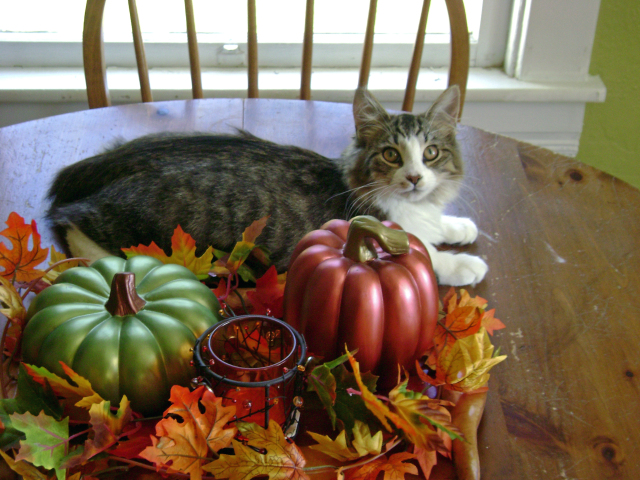 The breed of my 5 1/2 month old kitten
Question
Edmund 5 1/2 months ol
Hi, my husband and I re
The breed of my 5 1/2 month old kitten
Question
Edmund 5 1/2 months ol
Hi, my husband and I re
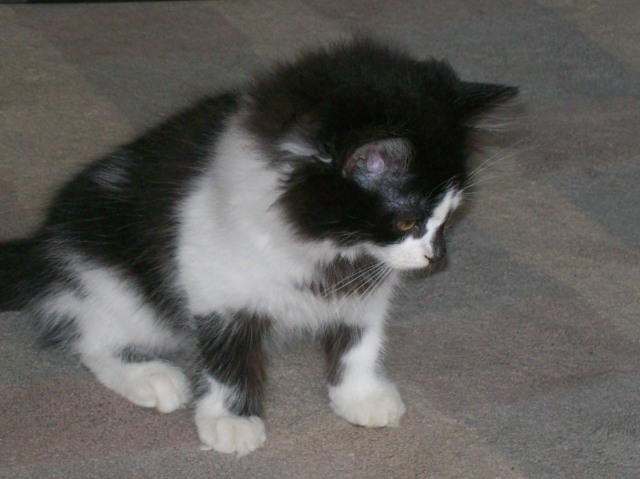 handling my 9 week ferel kitten
QuestionMillie
QUESTION: Hi. My lovely 9 week ki
handling my 9 week ferel kitten
QuestionMillie
QUESTION: Hi. My lovely 9 week ki
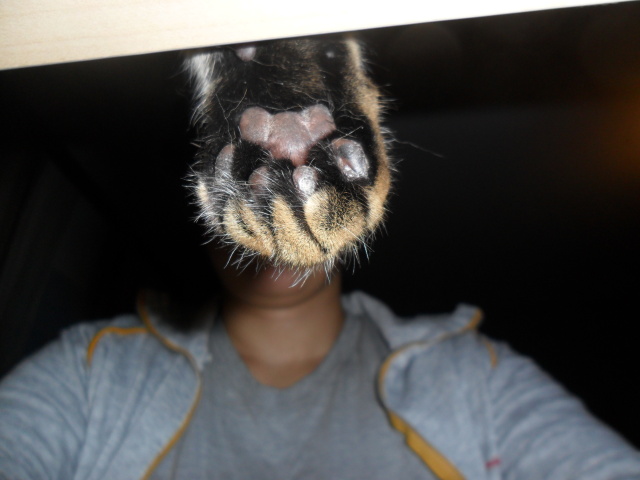 Cat paw pad white spot
Question
Drakey Paw Pad
Hi,
I just randomly noticed th
Cat paw pad white spot
Question
Drakey Paw Pad
Hi,
I just randomly noticed th
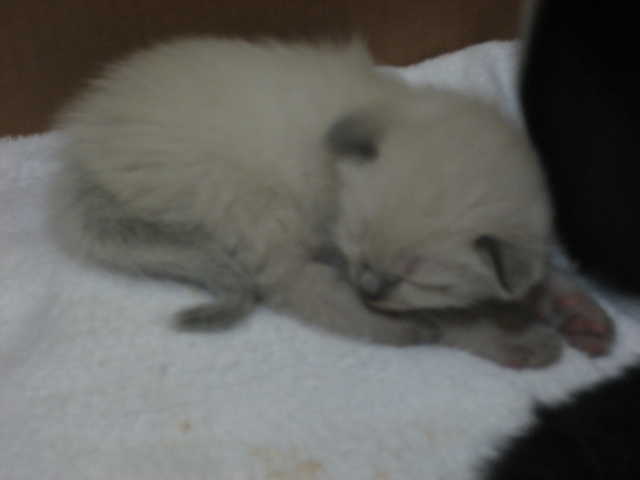 is my kitten a blue point?
QuestionPolar bear
QUESTION: hi, our black and w
is my kitten a blue point?
QuestionPolar bear
QUESTION: hi, our black and w
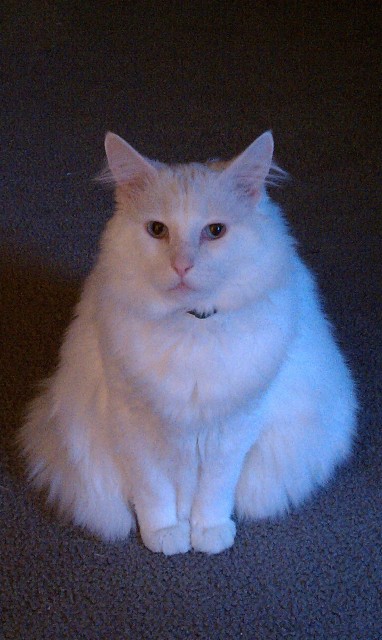 can you identify the breed of my cat?
Question
charlie
Ive been guessing Norwegian Forest Cat
can you identify the breed of my cat?
Question
charlie
Ive been guessing Norwegian Forest Cat